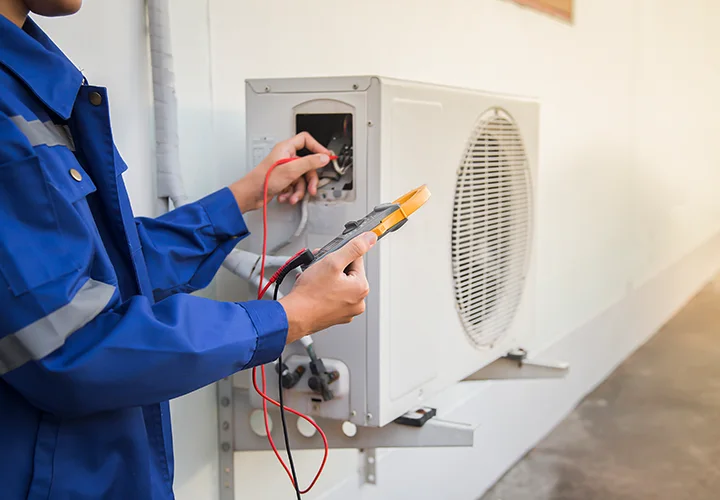
Modern air conditioning and temperature and humidity control systems are used in a variety of environments across the world. The key role of these systems is to maintain thermal comfort by adjusting the temperature and humidity of the indoor air.
Fresh outdoor air is continually taken into the HVAC system and conditioned before circulation to preserve air quality. However, due to varied geographical climates, exterior temperatures might range from -50 to +50°C, with humidity levels ranging from -30 to +30°C dew point.
It is difficult to design a system that would work satisfactorily in such a wide variety of settings; therefore, HVAC systems must be properly set up and subjected to a rigorous testing process before sale. But how is the testing carried out?
This blog will shed light on how HVAC systems undergo testing to guarantee they are functional and optimally efficient.
Also read: Key Applications of Psychrometric Labs in HVAC Systems
A Typical HVAC Test Procedure
Each HVAC system is tested in a range of climatic circumstances to verify that the following parameters are within acceptable limits at the outlet to assure product quality:
- Airflow
- Temperature
- Pressure
- Humidity
The tests’ goals are to validate the performance and efficiency of the system, as well as to establish the needed fill level of refrigerant gas. Each manufacturer will run many test rigs, each consisting of two environmentally controlled chambers: one to replicate outside circumstances and another to simulate inside ones.
Energy Consumption Analysis
Energy conservation is linked with an efficient HVAC system. Testing includes examining energy consumption trends and determining how well the system transforms energy into required temperature changes. It is an important step in identifying areas for improvement and ensuring environmentally friendly functioning.
Airflow Calibration
Optimal airflow is vital for effective temperature control. HVAC systems undergo testing to ensure that air distribution is uniform throughout a space. Technicians measure airflow velocity and adjust dampers to guarantee consistent room comfort levels.
Refrigerant Checks for Cooling Systems
Checking the refrigerant levels in air conditioning systems is an important element of efficiency testing. Inadequate refrigerant levels result in higher energy usage and decreased cooling capability. Regular inspections guarantee the system operates optimally, providing cool comfort without wasting electricity.
Seasonal Energy Efficiency Ratio (SEER) Evaluation
An AC’s SEER (Seasonal Energy Efficiency Ratio) depicts its efficiency. It quantifies how effectively a system can cool a space over an entire season. Higher SEER ratings denote greater efficiency, making it an essential parameter in HVAC efficiency testing.
Heat Exchanger Inspection
Heating efficiency is also critical, especially in colder climates. Heat exchangers in HVAC systems with heating capability are rigorously tested. It maximises heat transfer and guarantees warmth without an expensive energy cost.
Smart Controls and Automation Testing
Modern HVAC systems often have smart controls and automation features. Efficiency testing extends to these components, ensuring the system can intelligently adapt to varying conditions. Smart controls are crucial in optimising energy usage based on real-time demands.
Environmental Impact Assessment
Beyond functionality, the environmental impact of HVAC systems is a growing concern. Efficiency testing encompasses an evaluation of the system’s eco-friendliness. It involves assessing the materials used, disposal processes, and the overall carbon footprint of the HVAC unit.
In Conclusion:
The efficiency of HVAC systems is critical in the pursuit of interior comfort. Engineers deal with the complexities of energy usage, airflow, refrigerant levels, and environmental effects through thorough testing to guarantee these systems work at their peak.
As we strive for more sustainable living, the efficiency of HVAC systems becomes an unavoidable consideration. The effectiveness of these systems affects our daily life, from the subtle hum of air movement to the warmth on a freezing winter evening.
When you revel in the ideal indoor temperature, remember the rigorous testing that ensures your HVAC systems optimal efficiency. Want to have your HVAC systems tested? Let Delta Stark help. We are a one of a kind environmental test chamber manufacturer in Chennai that can offer you unparalleled precision and reliability in your HVAC efficiency testing.
Contact us today for cutting-edge solutions for your HVAC systems- from Air conditioner test labs to Psychometric labs!
